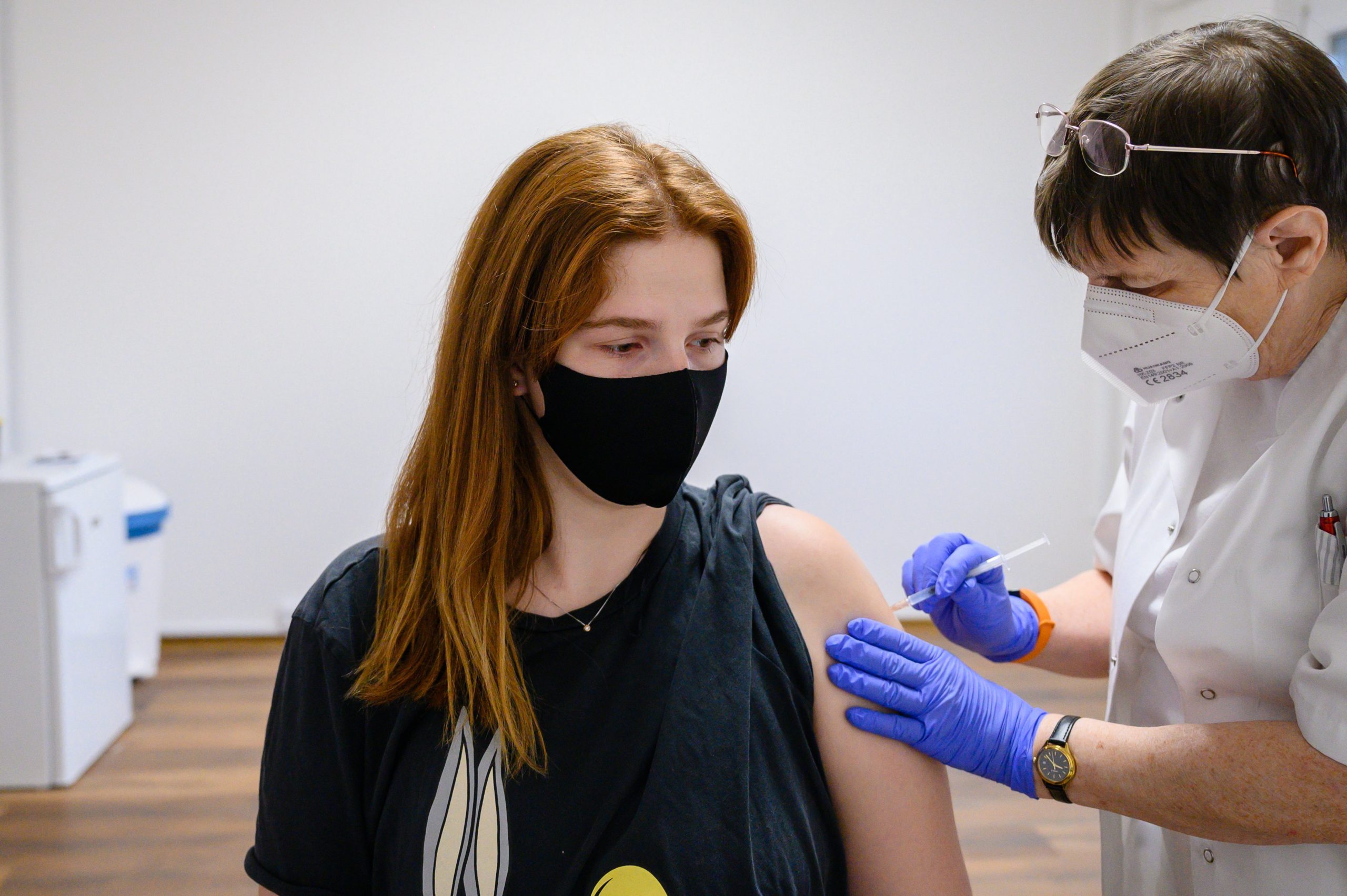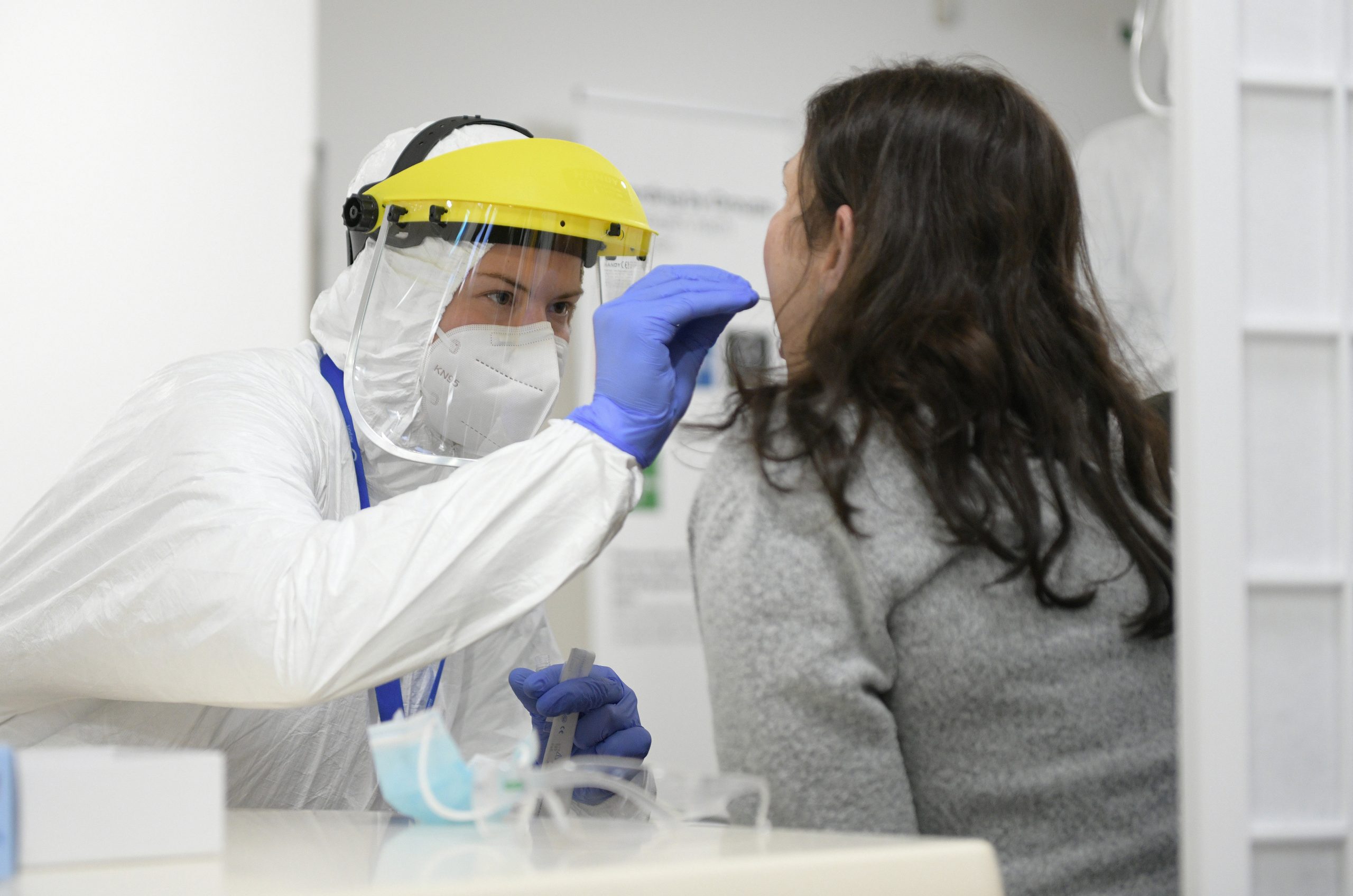
In mid-January, the government announced that a fourth dose of the coronavirus vaccine will be available to the entire adult population. However, experts recommend it only for certain groups.Continue reading

According to the latest investigation by the Hungarian Competition Authority (GVH), rapid coronavirus tests in Hungary are too expensive because there is no competition in the country. In addition, the authority has found that consumer information about them is also inadequate. The tests are indeed very expensive in Hungary, which explains why very few people get them and why the positivity rate of the tests performed is so high. The GVH now proposes to allow tests in retail chains, drugstores, and gas stations, as is not at all uncommon in other European countries.
This article was originally published on our sister-site, Ungarn Heute.
The number of new infections in Hungary has reached a record high in the last few days, but with a very low testing rate (in the last 24 hours alone, 27,000 tests were performed in Hungary, of which more than 20,000 came back positive. Meanwhile, in neighboring Austria, they performed more than 500,000 tests with an almost similar number of new infections). Currently, a Hungarian doctor orders a government-funded test when a person shows symptoms. But even then, it is not certain that he/she will be given a PCR test. (Although PCR is the only accepted option in the whole European Union). Therefore, many people are forced to pay for their own testing. But this is not so easy, because the price and quality of these products are very different. The choice is wide: there are more than a dozen different rapid tests. A family of four can get by with HUF 8,000 for testing (though reliability is questionable), but you can also spend up to 60,000 forints for it.
Asked why (rapid) tests are more expensive in Hungary than in the rest of Europe, the Prime Minister said at a government press conference as recently as December that the Competition Authority should look into the matter because “the current situation is unacceptable.” The Competition Authority then investigated the price of the tests as part of a fast-track procedure, and has recently made proposals to reduce the price.
In addition to the distribution chains and competitive relationships of the COVID rapid tests, experts also reviewed the adequacy of consumer information on the product range as part of the comprehensive investigation. The competition authority conducted on-site inspections based on a court order, requested information from several market participants, consulted the National Institute of Pharmacy and Nutrition (OGYÉI), and sent requests for information to all EU competition authorities, and the European Commission’s Directorate-General for Competition. The GVH also conducted a consumer survey to get a more detailed picture of business practices in the online sale of rapid antigen tests.
On this basis, the national authority has identified a number of problems that could prevent a more favorable price level for consumers. According to the draft report, these are as follows:
It is not exactly easy to compare prices for tests in different countries. On the one hand, there is no complete database on this, and on the other hand, prices are in most cases compared more from a travel perspective, i.e. according to what a foreigner has to pay in a particular country. However, we have found, among others, a Lidl flyer of a store in Germany which shows that COVID rapid tests are also accessible in retail chains, namely for a relatively low price. There you only have to pay 1.75 euros for one.
Also, the European Consumer Center of Germany has compiled the cost of rapid tests in several European countries from a traveler’s point of view.
Usually, the following tests are offered in other European countries:
Let’s take a look at the prices:
In Hungary, the maximum price for a PCR test is set by law at 19,500 HUF (approximately 55 euros). Antigen tests are offered between 9,000 HUF and 15,000 HUF (approximately 25 euros to 41 euros).
According to the Czech Ministry of Health, Corona tests (RT-PCR) are free of charge only for people with statutory health insurance and only under certain conditions. Otherwise, the prices for COVID tests vary in the respective test centers. However, the Ministry of Health has set the following maximum prices: Antigen test: 201 CZK (approx. EUR 8), PCR test: 614 CZK (approx. EUR 24) for the test itself, plus 200 CZK (approx. EUR 8) for taking the sample.
In Spain, COVID testing is free only if there has been recent contact with an infected person or if there are symptoms of COVID-19. In these cases, the test can be done in a public medical center. Otherwise, COVID tests must be paid for. This also applies to tourists. An antigen test can be obtained in Spain for about 50 euros (often cheaper). A PCR test is usually available for less than 100 euros. Tourists can also obtain self-tests in pharmacies. Prices range from 3 to 8 euros per test. However, these results are not suitable for traveling.
PCR tests are free of charge for Slovenian citizens, provided that the test has been ordered by a physician. Rapid antigen tests are available free of charge to all persons who have health insurance in Slovenia. The price of a rapid antigen test is 7 euros. PCR tests cost between 80 and 100 euros.
In Slovakia: PCR tests cost between 50 and 80 euros, antigen tests about 15 euros. In Romania, you have to pay between 38 and 50 euros for PCR tests, and between 10 and 15 euros for antigen tests.
For rapid antigen tests, the Italian government has set the following price caps to apply until December 31, 2022:
One of the best test countries in the world is Austria. In Austria, there are so-called “test streets” throughout the country, organized by the provinces and municipalities. There, tourists can also have an antigen test performed free of charge. The test results are available after just 15 minutes.
The government has already emphasized several times that it is relying primarily on vaccination to combat the epidemic. As the prime minister has repeatedly said, “A test will not protect you from disease.” A test certainly cannot prevent the disease, but it would slow the spread of the epidemic. In any case, it is welcome that the authorities have finally taken action to review the price of testing, two years after the coronavirus outbreak in Hungary.
Source: EVZ.de, Portfolio, GVH
Featured image: Attila Balázs/MTI